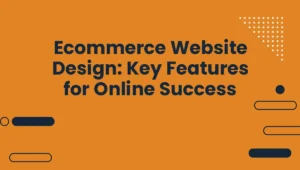Nowadays it seems inconceivable that someone doesn’t know what Facebook is or, worse yet, doesn’t care at all.
Facebook has become the most popular social network of all time and, therefore, a site that has transcended from a simple means of communication to a platform for business, entertainment, news, and even marketing and sales.
Interested in having as much context as possible about Facebook? You are in the right place.
In this guide we will cover all the essential information about Facebook: what it is, what it is for, what its history is, how you can do digital marketing on the platform, how its algorithm works, among other things.
What is Facebook?
Let’s go first with the essentials: what is Facebook?
Strictly speaking, it is an American digital social media platform belonging to Meta Platforms, Inc, which was previously known as Facebook, Inc.
In a slightly more simplified way, Facebook is a social network where you can publish and share audiovisual posts and texts with your contacts (friends).
Facebook’s goal has always been quite simple but complex at the same time: to connect people through the Internet.
However, in the digital age everything is about evolving and adopting new technologies, so little by little this famous social network has ceased to be “simple” and has become a platform with a large number of options.
These are some of the main functionalities and features:
- Wall: This is your profile page, where all the posts you make and share are displayed.
- Chat (Messenger) : These are direct —and private— messages, where you can have conversations with your contacts or Facebook pages. Group chats can also be made.
- Friends list: These are all the contacts you added and with whom you can interact.
- Groups: These are spaces for users who share a common interest, that is, it is the place for Facebook communities.
- Fanpages: They are like profiles but focused on commercial accounts or organizations, since they offer specific management tools.
- Facebook Marketplace : A section specialized in the exchange of goods and services within the platform.
- Photos: Section where all your photo and video posts are saved.
- Applications: These are applications that work on the Facebook platform. These ask you for permissions to access your profile information so that they work better.
- Games: It is the section where the video games that work with the platform are. Most of them are very simple.
- Facebook couples: A section similar to Tinder, where you can meet other users who have similar interests to yours, and who are looking for a romantic partner.
- Weather: Where you can see the weather in your area.
- Meta Business Suite: It is a business manager where you can manage your ads, messages, calendar, statistics, etc.
Facebook history: how did it become what it is today?
The beginning of everything: Facemash and The facebook
But how did Facebook start?
This is a story that is already quite well known —mainly because of the movie “The Social Network”, also called “Red Social” in Spanish—, but which is very interesting to tell:
It all started in 2003 with Facemash, a site created by Mark Zuckerberg, Dustin Moskovitz and Chris Hughes when they were studying at Harvard University.
This website compared the photos of various female students on campus, in order to decide which was the most attractive. This was obviously wrong and quickly earned the ire of many people, both students and teachers.
This caused Facemash to be closed for life.
In 2004 the Winklevoss brothers along with Divya Narendra found out about Zuckerberg’s work at Facemash and saw potential in him, so they called him to invite him to a project called “HarvardConnection.com” which consisted of an online student directory.
And although he accepted, it didn’t take long for him to get to work on a side personal project: “Thefacebook” , which was very similar to what he was working on with the Winklevoss brothers but with significant improvements, and which —unlike Facemash — had a positive approach.
Thefacebook came to light on February 4, 2004, but not without avoiding legal problems, as the Winklevoss brothers and Narendra claimed that Zuckerberg had stolen several of the ideas for their project and had hindered it.
Despite these problems, Thefacebook became a resounding success among students, and from then on it never stopped growing.
And as happened with Facemash, this success caught the attention of someone important, this time Sean Parker —the creator of Napster—, who saw a great business opportunity and was able to negotiate his entry as CEO. At this point, the name of the social network was changed to just “Facebook”.
However, a year later Sean Parker ceased to be president due to legal problems for possession of cocaine.
After this, Facebook continued to spread to all parts of the world, until in 2006 Facebook could be available to any Internet user .

A complete change: the metaverse
And what is happening today?
As we mentioned a little above at the beginning of the article, in October 2021 Mark Zuckerberg announced the change of company name from Facebook, Inc. to Meta Platforms, Inc.
But this is not a simple name change, but a complete change in the way of building your business, because now it is a “metaverse company”, that is, a company that seeks to build an immersive three-dimensional internet, a place to live the internet.
In Zuckerberg’s own words:
“The metaverse is the next evolution of social connection. Our company vision is to help bring the metaverse to life, so we are changing our name to reflect our commitment to this future .”
A virtual world where people can interact with each other, living a life in the metaverse would be possible thanks to Meta. Technology is even being developed to perceive sensations “similar” to touch.
All this means that Meta would be like living a “double life”.
And while we still can’t see the metaverse at its fullest, there are already metaverses that we’ve interacted with before—in video games, for example—so many of us are more than ready to see how these kinds of platforms unfold/ worlds.
What is Facebook for?
It is somewhat curious that everyone knows Facebook, but that many have been left with the idea that it is only used for entertainment or to “waste time”.
The point is that Facebook has a lot of uses today. If we had been told about 15 years ago that Facebook would be used to find a partner or to directly sell our products, we probably would have doubted it.
So, in a somewhat general way, we can say that Facebook is used to:
- Hang out and share experiences—and memes—with friends and family.
- Create groups and fanpages of common interests.
- Create a company page to share valuable content with your target audience.
- Maintain an online store for a local business.
- Play within the platform.
- Watch and stream.
- Create advertising campaigns on Facebook Ads.
- Do content marketing as part of an inbound marketing strategy .
- Position a product, service or brand on the internet.
- Get traffic for your website.
- Convert prospects (potential buyers) into customers.
- Create and organize events of different types.
- Meet other people on “Facebook Couples”.
- Sell and buy products on Facebook Marketplace.
- Create fundraisers for non-profit organizations, and make donations (select countries only).
- Chat with your contacts (Facebook Messenger). In this part there is also an exclusive chat for children called Messenger Kids, which allows parents to manage their children’s accounts.
- Among other things.
Now, all this can be grouped into 2 large utilities:
- The personal realm.
- Online business and marketing.
In the following sections we will talk a little more about this:
Facebook as a tool for your personal image
Have you heard about personal image in the digital realm? This is about all the elements that make up your appearance on the internet.
It happens that one of the great uses of Facebook is precisely to be able to work on personal digital identity.
For example, if you plan to become a travel and tourism influencer, you could share your experiences on a fan page through photos, videos, reviews, and even links to your travel blog.
Practically all influencers —or almost all— start from scratch on a social network, and thanks to the quality of their content they gradually increase their audience, allowing them to redirect said users to other social networks, such as Instagram, Twitter or YouTube.
What if you don’t want to be famous? No problem, because not everything is about increasing your number of followers; Another of Facebook’s personal uses lies in being able to create and enter groups, that is, participate in Internet communities.
If you have a hobby that you’re really passionate about, like writing, for example, you could join a writing group and share what you’re writing, read other people’s work, answer questions, and offer help. It’s a win-win.
Facebook as a digital marketing tool
Now, if you have your own company or are the manager of one, you have probably considered implementing a social media strategy .
Although it would be better to complement this with content marketing and inbound marketing, the truth is that Facebook alone offers many benefits for companies.
For example, you can create content related to your business and share it on your feed, to attract the attention of your buyer persona —which is a semi-fictional representation of your ideal buyer— and get organic leads.
Another option is to set up a Facebook Ads campaign to reach people who don’t follow you, but who might have some interest in what you offer. Here it is best to have the help of experts, such as an inbound marketing agency, which will carry out the segmentation and make the most of your budget.
Something very important that you must take into account is that not all strategies work for all sectors. It is not the same to do a campaign for a real estate agency for industrial lots than for a hotel or a hospital.
Tips for Marketing on Facebook
Talking about the entirety of a social media strategy is too long, but we can summarize several very useful tips that will ultimately improve your results on Facebook as soon as you start applying them.
Here are the tips:
1. Create a business page on Facebook
This advice is the most obvious, but essential in many respects.
Some small businesses choose to create a personal profile and from there they start to get their first clients, and while this can be functional on a small scale, when you have the need to grow you will find a very big wall.
This is because personal profiles do not have the same functionality as a Page.
Facebook pages, or fanpages, offer you:
- Greater visibility, since anyone can see your page.
- Possibility of advertising your content through a budget and segmentation.
- Metrics of the reach and performance of your content and ads.
- Integrations with other apps and tools, like HubSpot .
- Creation and administration of a chatbot that attends to your potential clients at any time of the day.
- Possibility to create an online community.
2. Optimize your Facebook page
As we discussed in the Facebook history part, this social network constantly applies updates, so things that used to work might not work as well today.
Some examples of these changes are: the sizes of covers and other images, arrangement of sections and buttons, calls to action, integrations with applications, new functions, etc.
Although this sounds like something negative, it is quite the opposite, as it opens the door to new ways of reaching your target audience. All you have to do is stay on top of updates and take advantage of them.
3. Take advantage of the visual impact
The visual impact not only works on Facebook, but on practically all social networks, as it is a reality that many people pay more attention to images than to the text that accompanies them. This also applies to videos.
By doing this you ensure that:
- More people will come to your page and click on the calls to action.
- You will improve your corporate image and, therefore, your reputation.
- If you show quality images of your products or services, people are more likely to trust and dare to buy.
- Depending on the type of image, there is a possibility that it will go viral, obtaining a lot of traffic.
4. Set up your CTA
Facebook has an option to add a call to action (CTA) at the top, just below the cover.
Remember that a call to action is a phrase—or even just a word—that tells the user what action to take. They are usually used on buttons.
Among the calls to action you can choose from are:
- To follow.
- See gift card.
- Start order.
- Reserve.
- To call.
- Contact us.
- Send Message.
- Send WhatsApp message.
- Send mail.
- More information.
- Sign up.
- Use app.
- Play.
- Go to group.
- Watch video.
- Buy on the website.
5. Do content marketing
Content marketing is responsible for creating content of value for the user, that helps them with their problems or that addresses some of their interests. For this to be functional, it has to be consistent with the line of business of the company and its products.
Content can be done at every stage of the buyer’s journey—discovery, consideration, and decision—so it not only works to engage prospects, it also works to convince them in the sales process.
On Facebook, content tends to be more attractive when it is shared organically in the feed, for example, videos and infographics.
6. Publish your content at the best possible time
Creating content and publishing it without a well thought out strategy gives you the same results as not doing it, which is to say, none.
There are many things to consider, but one of the most important aspects is deciding the best time to post on social networks , which can vary depending on the public and the network itself.
Seen in a somewhat general way, in the case of Facebook, we have that the best time for publication is on Wednesdays at 11:00 a.m. and between 1:00 p.m. and 2:00 p.m.
7. Do not forget the human treatment with your users
You must never forget that you deal with other people and not with “numbers”, “sales” or “vanity metrics”, therefore, they must be treated with respect and kindness.
Making sure that this is the case is part of the job of the Social Media Manager and the Community Manager , since they are the ones who are in charge of being the voice of the company in social networks.
Also consider that being friendly is not the same as being informal; not all companies can handle informal language in their publications and conversations, but rather —due to their industrial sector— they require more formal and even technical communication.
A company in the food and beverage sector might have a more youthful personality, while one in the health and investment sector might have a more serious personality.
8. Analyze the results and correct
Analyzing the metrics is the daily bread in a digital marketing strategy, and with Facebook you have to do it too.
The advantage that Facebook has is that it has the option of analyzing this data in the page manager itself , where it shows you the performance of the publications in terms of reach and interactions, both organic and paid.
However, all of this data can also be managed from external tools, such as HubSpot.
Facebook is as useful as it is entertaining
As you may have noticed, Facebook is here to stay, not in vain millions of people use it every day, from high school, high school, university students, to professionals and older people.
Whether yours is to use Facebook for your entertainment or you have a business and want to get the most out of your strategy, you will surely find a function in this social network that will help you achieve your goal.
Do you want to make sure that your Facebook strategy is correct? In Cham! We are experts in inbound marketing and we know how to create strategies that communicate the right message to your audience, including channels like Facebook. If you are ready to get real results, then we can help you.








